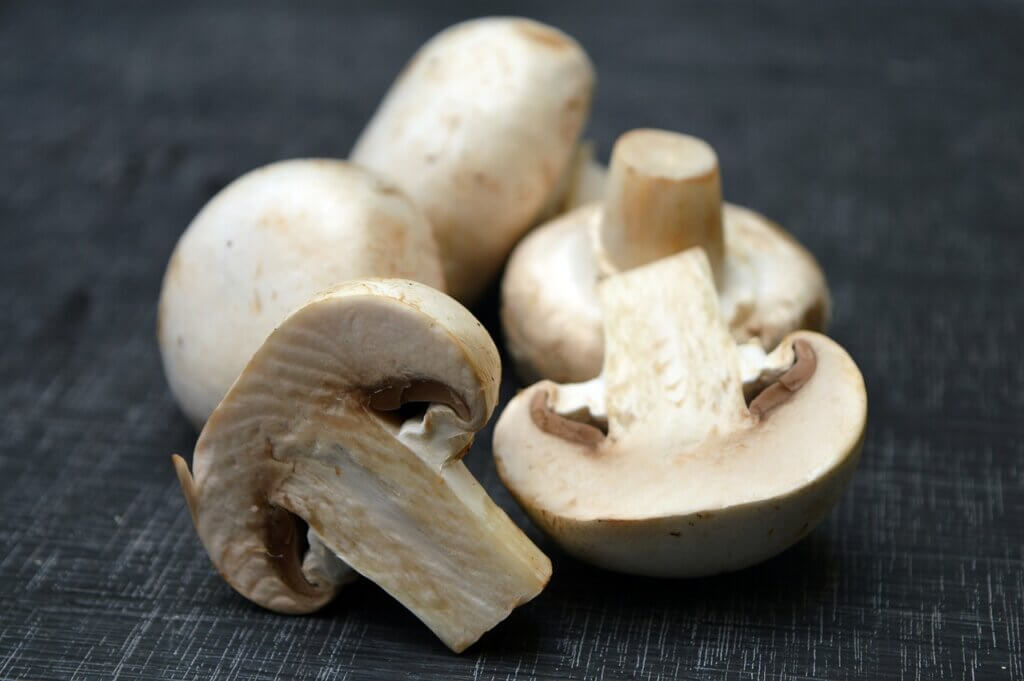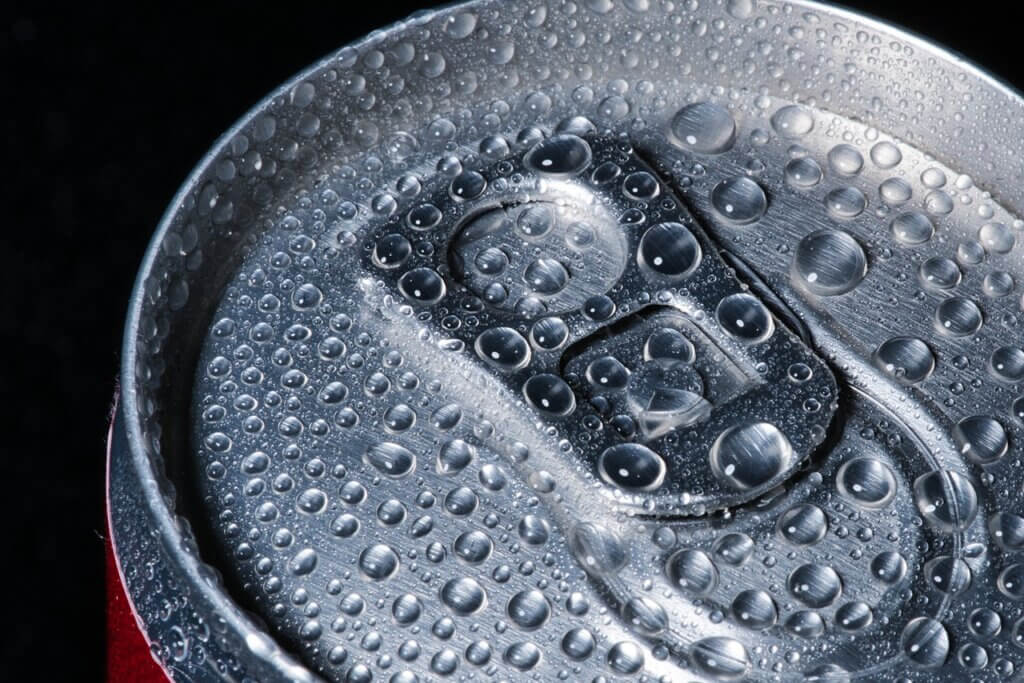8 Foods that Produce Gas


Escrito y verificado por el nutricionista Saúl Sánchez
Gas occurs naturally in the intestine from some foods and this doesn’t always indicate a health problem. They originate from the fermentation of some fibers or from the consumption of proteins in large quantities. However, it’s true that when they accumulate in excess they can be annoying.
Keep in mind that gas production depends on several factors. Some people are especially prone to this condition.
In addition, diet plays a determining role. Even the composition of the gut microbiota participates in the process.
Foods that produce gas more often
We’re going to tell you below which are the main foods that produce gases in the human body. If you have a tendency to suffer from this condition and it’s bothersome, it’s best to moderate its consumption in your diet.
1. Beans
Legumes are weathering foods. This means that they stimulate the synthesis of gases at the intestinal level.
This is due to their fiber content. Specifically, in the presence of oligosaccharides. These substances can’t be broken down in the small intestine, and so they pass into the colon intact, where they’ll be fermented.
The very process of fermentation by the bacteria that make up the microbiota is what generates the gas. However, this fermentation is positive, as it allows the microorganisms to nourish and grow optimally. If not, bacterial density would be lost in the digestive tract.
There are certain methods you can use to make beans produce less gas. One of them is to cook them for a longer period of time over a low heat. In this way, the fibers soften, which causes further breakdown of the fibers in the small intestine. Grinding them is another option.
Chickpeas and lentils also stick to the same principle. A good option to include these foods of high nutritional density in the diet without stimulating the creation of gas is their consuming them in hummus.
2. Mushrooms
Mushrooms are also a source of oligosaccharides, which is why they’re another food that produces gases. Specifically, they contain raffinose.
According to a study published in Nutrients, this compound is capable of improving the health of the microbiota. However, it also generates an increase in gas production and even a slight laxative effect.
In this way, mushrooms can be a good solution to fight constipation. The fibers of the fungi reach the colon intact, where they’re fermented by the bacteria that live there.

3. Dairy products
Dairy products can increase gas production, especially in lactose intolerant people. If there’s a problem in the metabolization of sugar due to a lack of lactase, the consumption of the nutrient causes a sensation of bloating and accumulation of gases in the digestive tract.
However, dairy doesn’t always have lactose in large amounts – for example, yogurts. Plus, they contain probiotics that have been shown to be beneficial for gut health.
If you don’t tolerate dairy products with lactose very well, you can always resort to varieties without the carbohydrate. This avoids suppressing a food group with such nutritional density.
4. Wheat
Refined wheat doesn’t create an increase in gas production on a regular basis. However, the whole varieties, which are the most advisable, are capable of causing fermentation in the large intestine. This effect is beneficial to health, but annoying.
Keep in mind that wheat also contains fructose, a sugar whose digestion may not be ideal. In the case of those intolerant to fructose, the nutrient passes intact to the large intestine, where it will be fermented.
5. Fruit
Fruits stand out for their fiber content. Most of it is soluble, and so it has the ability to be fermentable in the large intestine.
In fact, this class of compounds are considered prebiotics. A study published in the journal Nature Reviews assures that they contribute to improving digestive efficiency and intestinal health.
However, an excess of prebiotics in the diet could cause discomfort due to gas accumulation. This is especially so in patients with intestinal dysbiosis. When fruits cause a lot of gas, doctors usually suspect that there’s some sort of alteration in the profile of the bacteria that inhabit the intestine.
On the other hand, it must be taken into account that the fruits that have been shown to create the greatest amount of soluble fiber inside are apples, pears, and kiwis. Its effect is much greater when consumed with skin.
6. Cruciferous
Cruciferous vegetables are considered very healthy due to the presence of antioxidant phytonutrients in their composition. In addition, they have a lot of fiber inside.
The latter is a double-edged sword. On the one hand, traffic is stimulated and a feeling of satiety is generated; but on the other hand, it’s one of the foods that produces the most gases.
In fact, in the cases of patients with inflammatory bowel diseases, it’s recommended that you suppress these products from your diet in order to improve the control of symptoms. This is evidenced by a study published in the World Journal of Gastroenterology.
These vegetables are considered weathering, just like legumes. Broccoli, cabbage, cauliflower and Brussels sprouts belong to this group. However, extensive cooking causes softening of the fibers, which could reduce the effect.
7. Artificial sweeteners
Artificial sweeteners are a group of additives that creates a lot of disagreement among nutrition experts. They’re used as substitutes for sugar, although there’s no evidence to show that they’re actually a better option than simple carbohydrates.
On the other hand, it has been shown that they have a negative impact on the intestinal microbiota, altering its balance. According to research published in the journal Nutrients, these substances could affect the diversity and density of bacteria in the digestive tract.
In addition, it should be noted that many of these additives are broken down in the large intestine through fermentation processes. This would also cause an increase in the creation of gases, as evidenced by a study published in the journal Advances in Nutrition.
8. Carbonated drinks
Carbonated beverages can not only generate an increase in gas production due to their fructose content and artificial sweeteners, but they already contain it inside. For this reason, it’s recommended to avoid its intake if you’re prone to abdominal pain.
Keep in mind that the best option to ensure good hydration is water. Soft drinks and juices, meanwhile, contain a large amount of high-glycemic carbohydrates that negatively impact metabolic health.
The effects are even worse when combined with alcohol, since in this case a substance that is toxic is included in the equation. Not only does it generate alterations in the intestinal microbiota, but it also causes inefficiencies in the functioning of other organs.

Adapt your diet to avoid gas-producing foods
All the foods that we have discussed have the ability to stimulate gas production at an intestinal level. However, there’s no need to remove them completely. It’s also necessary to check the individual tolerance to each group.
On the other hand, you must always bear in mind that the diet must be as least restrictive as possible. In this sense, systematically avoiding food groups can condition the development of a nutritional deficit.
Finally, if you suffer from excess gas frequently and this causes you a lot of discomfort, then it’s best to go to a specialist. The professional will perform tests to assess whether there’s any underlying pathology or unknown intolerance. In this case, it’ll be necessary to take action in order to improve your general well-being.
Gas occurs naturally in the intestine from some foods and this doesn’t always indicate a health problem. They originate from the fermentation of some fibers or from the consumption of proteins in large quantities. However, it’s true that when they accumulate in excess they can be annoying.
Keep in mind that gas production depends on several factors. Some people are especially prone to this condition.
In addition, diet plays a determining role. Even the composition of the gut microbiota participates in the process.
Foods that produce gas more often
We’re going to tell you below which are the main foods that produce gases in the human body. If you have a tendency to suffer from this condition and it’s bothersome, it’s best to moderate its consumption in your diet.
1. Beans
Legumes are weathering foods. This means that they stimulate the synthesis of gases at the intestinal level.
This is due to their fiber content. Specifically, in the presence of oligosaccharides. These substances can’t be broken down in the small intestine, and so they pass into the colon intact, where they’ll be fermented.
The very process of fermentation by the bacteria that make up the microbiota is what generates the gas. However, this fermentation is positive, as it allows the microorganisms to nourish and grow optimally. If not, bacterial density would be lost in the digestive tract.
There are certain methods you can use to make beans produce less gas. One of them is to cook them for a longer period of time over a low heat. In this way, the fibers soften, which causes further breakdown of the fibers in the small intestine. Grinding them is another option.
Chickpeas and lentils also stick to the same principle. A good option to include these foods of high nutritional density in the diet without stimulating the creation of gas is their consuming them in hummus.
2. Mushrooms
Mushrooms are also a source of oligosaccharides, which is why they’re another food that produces gases. Specifically, they contain raffinose.
According to a study published in Nutrients, this compound is capable of improving the health of the microbiota. However, it also generates an increase in gas production and even a slight laxative effect.
In this way, mushrooms can be a good solution to fight constipation. The fibers of the fungi reach the colon intact, where they’re fermented by the bacteria that live there.

3. Dairy products
Dairy products can increase gas production, especially in lactose intolerant people. If there’s a problem in the metabolization of sugar due to a lack of lactase, the consumption of the nutrient causes a sensation of bloating and accumulation of gases in the digestive tract.
However, dairy doesn’t always have lactose in large amounts – for example, yogurts. Plus, they contain probiotics that have been shown to be beneficial for gut health.
If you don’t tolerate dairy products with lactose very well, you can always resort to varieties without the carbohydrate. This avoids suppressing a food group with such nutritional density.
4. Wheat
Refined wheat doesn’t create an increase in gas production on a regular basis. However, the whole varieties, which are the most advisable, are capable of causing fermentation in the large intestine. This effect is beneficial to health, but annoying.
Keep in mind that wheat also contains fructose, a sugar whose digestion may not be ideal. In the case of those intolerant to fructose, the nutrient passes intact to the large intestine, where it will be fermented.
5. Fruit
Fruits stand out for their fiber content. Most of it is soluble, and so it has the ability to be fermentable in the large intestine.
In fact, this class of compounds are considered prebiotics. A study published in the journal Nature Reviews assures that they contribute to improving digestive efficiency and intestinal health.
However, an excess of prebiotics in the diet could cause discomfort due to gas accumulation. This is especially so in patients with intestinal dysbiosis. When fruits cause a lot of gas, doctors usually suspect that there’s some sort of alteration in the profile of the bacteria that inhabit the intestine.
On the other hand, it must be taken into account that the fruits that have been shown to create the greatest amount of soluble fiber inside are apples, pears, and kiwis. Its effect is much greater when consumed with skin.
6. Cruciferous
Cruciferous vegetables are considered very healthy due to the presence of antioxidant phytonutrients in their composition. In addition, they have a lot of fiber inside.
The latter is a double-edged sword. On the one hand, traffic is stimulated and a feeling of satiety is generated; but on the other hand, it’s one of the foods that produces the most gases.
In fact, in the cases of patients with inflammatory bowel diseases, it’s recommended that you suppress these products from your diet in order to improve the control of symptoms. This is evidenced by a study published in the World Journal of Gastroenterology.
These vegetables are considered weathering, just like legumes. Broccoli, cabbage, cauliflower and Brussels sprouts belong to this group. However, extensive cooking causes softening of the fibers, which could reduce the effect.
7. Artificial sweeteners
Artificial sweeteners are a group of additives that creates a lot of disagreement among nutrition experts. They’re used as substitutes for sugar, although there’s no evidence to show that they’re actually a better option than simple carbohydrates.
On the other hand, it has been shown that they have a negative impact on the intestinal microbiota, altering its balance. According to research published in the journal Nutrients, these substances could affect the diversity and density of bacteria in the digestive tract.
In addition, it should be noted that many of these additives are broken down in the large intestine through fermentation processes. This would also cause an increase in the creation of gases, as evidenced by a study published in the journal Advances in Nutrition.
8. Carbonated drinks
Carbonated beverages can not only generate an increase in gas production due to their fructose content and artificial sweeteners, but they already contain it inside. For this reason, it’s recommended to avoid its intake if you’re prone to abdominal pain.
Keep in mind that the best option to ensure good hydration is water. Soft drinks and juices, meanwhile, contain a large amount of high-glycemic carbohydrates that negatively impact metabolic health.
The effects are even worse when combined with alcohol, since in this case a substance that is toxic is included in the equation. Not only does it generate alterations in the intestinal microbiota, but it also causes inefficiencies in the functioning of other organs.

Adapt your diet to avoid gas-producing foods
All the foods that we have discussed have the ability to stimulate gas production at an intestinal level. However, there’s no need to remove them completely. It’s also necessary to check the individual tolerance to each group.
On the other hand, you must always bear in mind that the diet must be as least restrictive as possible. In this sense, systematically avoiding food groups can condition the development of a nutritional deficit.
Finally, if you suffer from excess gas frequently and this causes you a lot of discomfort, then it’s best to go to a specialist. The professional will perform tests to assess whether there’s any underlying pathology or unknown intolerance. In this case, it’ll be necessary to take action in order to improve your general well-being.
- Hess J., Wang Q., Gould T., Slavin J., Impact of Agaricus Bisporus Mushroom consumption on gut health markers in healthy adults. Nutrients, 2018.
- Markowiak P, Śliżewska K. Effects of Probiotics, Prebiotics, and Synbiotics on Human Health. Nutrients. 2017 Sep 15;9(9):1021. doi: 10.3390/nu9091021. PMID: 28914794; PMCID: PMC5622781.
- Sanders ME, Merenstein DJ, Reid G, Gibson GR, Rastall RA. Probiotics and prebiotics in intestinal health and disease: from biology to the clinic. Nat Rev Gastroenterol Hepatol. 2019 Oct;16(10):605-616. doi: 10.1038/s41575-019-0173-3. Epub 2019 Jul 11. Erratum in: Nat Rev Gastroenterol Hepatol. 2019 Aug 9;: PMID: 31296969.
- Cozma-petruţ A, Loghin F, Miere D, Dumitraşcu DL. Diet in irritable bowel syndrome: What to recommend, not what to forbid to patients! World J Gastroenterol. 2017;23(21):3771-3783. doi:10.3748/wjg.v23.i21.3771
- Plaza-Diaz J, Pastor-Villaescusa B, Rueda-Robles A, Abadia-Molina F, Ruiz-Ojeda FJ. Plausible Biological Interactions of Low- and Non-Calorie Sweeteners with the Intestinal Microbiota: An Update of Recent Studies. Nutrients. 2020 Apr 21;12(4):1153. doi: 10.3390/nu12041153. PMID: 32326137; PMCID: PMC7231174.
- Ruiz Ojeda FJ., Plaza Diaz J., Sáez Lara MJ., Gil A., Effect of sweeteners on the gut microbiota: a review of experimental studies and clinical trials. Advances in Nutrition, 2019.
Este texto se ofrece únicamente con propósitos informativos y no reemplaza la consulta con un profesional. Ante dudas, consulta a tu especialista.







